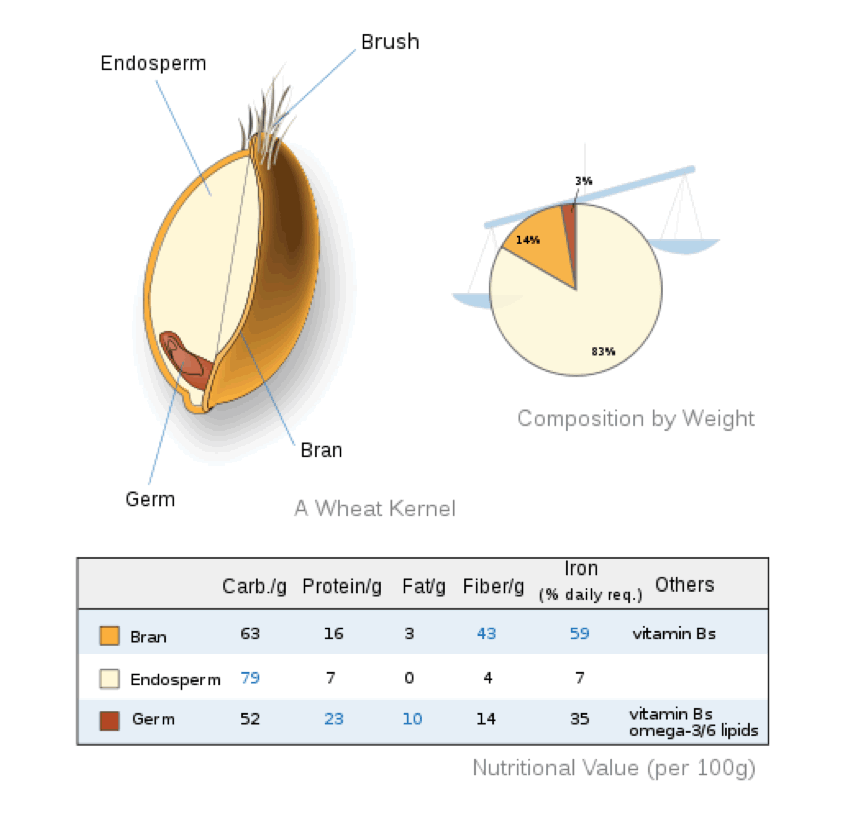Whole foods are foods that are unprocessed and unrefined, or processed and refined as little as possible, before being consumed. Whole foods typically do not contain added ingredients, such as sugar, salt, vitamins, or fat. Examples of whole foods include unpolished grains, beans, fruits, vegetables and non-homogenized dairy products.
Whole foods may not necessarily be organic or vice versa. Organic refers to the farming methods used rather than the production methods.
For example, the FDA defines whole grains as those still containing the bran, endosperm and germ of the original grain. Refined processed grains contain only the endosperm, resulting in nutritionally deficient food void of naturally occurring B vitamins.

